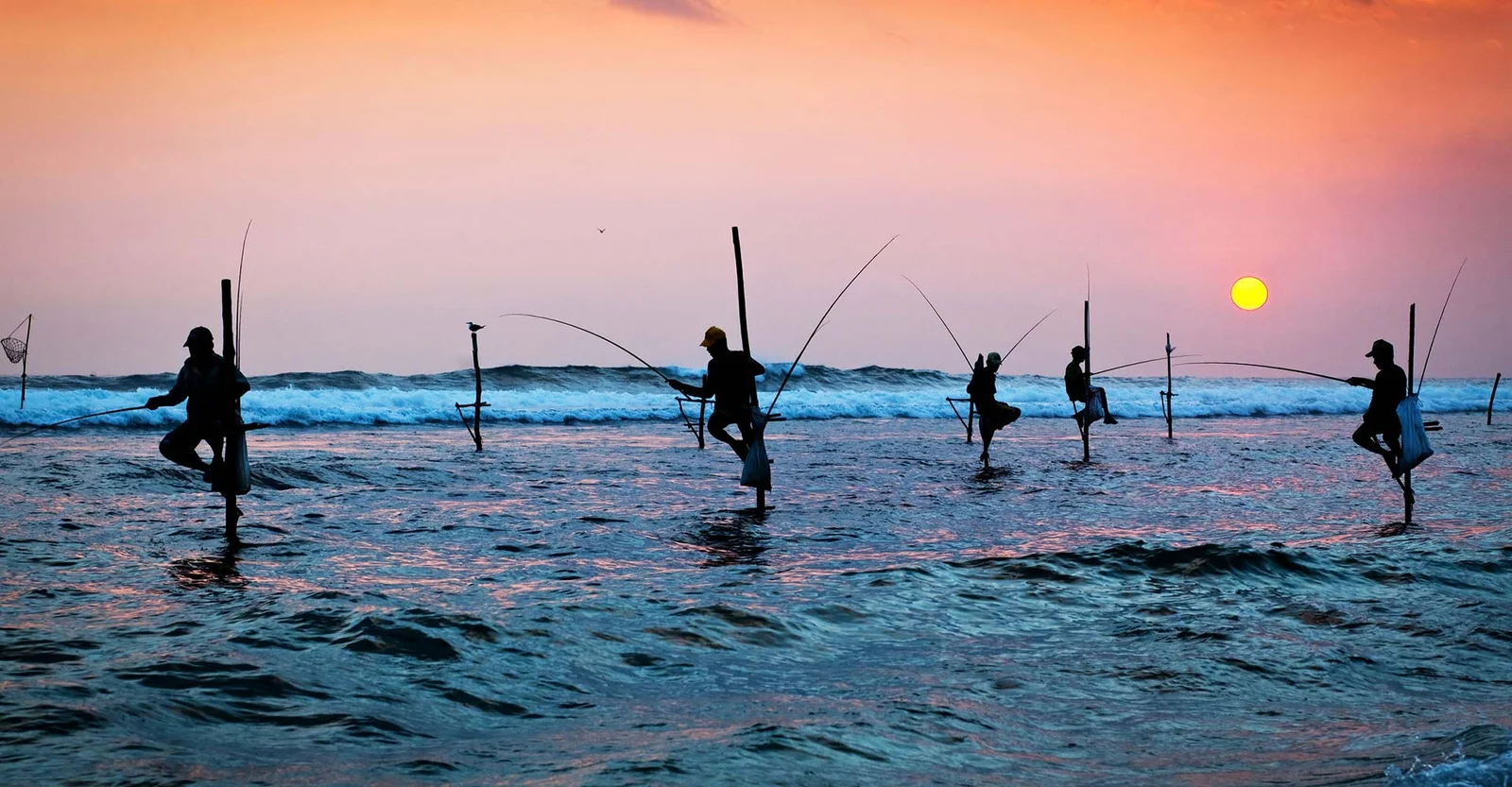Fishing like a local: Coastal traditions in Sri Lanka A glimpse into life by the sea
Veröffentlicht am August 27, 2025

Sri Lanka is surrounded by the sea on all sides, and fishing is a central part of everyday life for many coastal communities. In small villages along the coast, fishing is not just a profession but a way of life, passed down through generations. Many methods are simple, environmentally friendly, and deeply rooted in traditions. For visitors, experiencing these customs provides an authentic connection to the island's culture and people.
An island shaped by the ocean
Sri Lanka is surrounded by the sea on all sides, and fishing is a central part of everyday life for many coastal communities. In small villages along the coast, fishing is not just a profession but a way of life, passed down through generations. Many methods are simple, environmentally friendly, and deeply rooted in traditions. For visitors, experiencing these customs provides an authentic connection to the island's culture and people.
Traditional fishing methods
- Pile fishing
One of the most iconic scenes in southern Sri Lanka: fishermen sit quietly on wooden poles anchored in the shallow sea. With a hand rod and patience, they catch fish, without a boat or modern equipment. This image is especially striking at sunrise or sunset in places like Koggala and Weligama.
- Catamaran fishing
Small wooden boats, made from tied-together logs, are sent out to sea with nets or fishing lines. Early in the morning, often at sunrise, the fishermen set out and return with the day's catch—often sold at local fish markets.
- Lagoon and river fishing
In calm waters like those of Bentota and Negombo, locals fish for shrimp, crabs, and small fish using nets, traps, or traditional baskets. A quiet, leisurely activity that reflects the relaxed rhythm of life in these regions.
Fishing villages and everyday life
In coastal villages, the entire community often pitches in: While the men go out to sea, the women assist with cleaning, sorting, or drying the catch—or selling it at the market. Children learn these skills from an early age and often help out after school.
If you walk through such a village in the morning, you can hear the boat engines, the calls of the fishermen and smell fresh fish being prepared for the day.
Fresh catch and regional cuisine
Sri Lanka's seafood cuisine is captivating with its freshness and flavor. Many beachfront restaurants and households prepare dishes caught that day. Spiced fish curry, grilled shrimp, or fried squid rings are common delicacies along the coast. Sharing a meal with a local family or visiting a fish market means tasting the seafood fresh from the boat and experiencing the loving preparation.
Participation is welcome
Some communities offer short tours. Visitors can accompany a fisherman in the morning or explore the coast on a boat trip. These experiences are simple, honest, and eye-opening—they teach how closely connected humans and nature are and that the sea is more than just food: it is a source of life.
Respect for the sea
Fishing traditions in Sri Lanka are based on a deep respect for the marine world. Fishermen usually take only what they need and avoid waste. This mindful way of life demonstrates how people can live in harmony with nature.
A cultural treasure on the shore
Fishing in Sri Lanka means much more than just catching fish. It's part of stories, songs, family bonds, and everyday life. Watching a fisherman cast his net or children sorting fish brings you closer to the heart of the island.
Anyone who wants to fish like a local understands the deep connection between people and the sea. It's a quiet, patient work – and it speaks of life, tradition, family, and respect for nature.